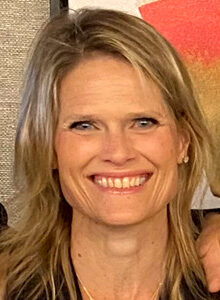Westchester Jewish Community Services (WJCS) operates four Certified Community Behavioral Health Clinics (CCBHC), with funding provided by the Substance Abuse and Mental Health Services Administration (SAMHSA) in Westchester County, NY. When individuals first enter our clinic, they are greeted by a member of the Care Coordination Team prior to meeting with their clinician. At this initial meeting, individuals learn about the array of services provided by WJCS, including those of the Care Coordination Team, which is comprised of a Peer Specialist, a Care Manager, and an Employment and Educational Specialist. At this time, they are asked to complete a Social Determinants of Health (SDOH) screen to better understand how the team can be helpful in coordinating care and identifying their concrete and non-clinical needs. This initial session, the SDOH, and the individual intake session with the clinician help guide the course of treatment and identify goals for recovery. The Clinical and Care Coordination Team works closely to support the individual with their recovery goals. When someone identifies employment as a goal, the individual is connected to our WJCS Employment Specialist.

The Certified Community Behavioral Health Clinics Employment Specialist provides person-centered educational and employment support to individuals requesting assistance with educational and vocational needs and ambitions. The Employment Specialist shares timely information and resources regarding educational and vocational opportunities, including assistance with applying for the GED, vocational programs, and mainstream educational opportunities, such as community, city, and state colleges and financial aid. The Employment Specialist assists individuals with completing and interpreting career assessments, creating resumes, navigating resources on the internet, the job application process, interview preparation, how to dress for success (including resources that provide free or reasonably priced career clothing), and provides personalized job development for competitive employment and ongoing support, including coaching surrounding interpersonal and problem-solving skills and solutions after individuals have successfully secured employment.
Research shows that 60 to 70 percent of people with severe mental illness want to work.1 It is evident when we meet with individuals at our clinics that this is true; a large number of individuals want to be employed, but each person is in a different stage of work readiness. Some individuals have a significant work history but have now found themselves unemployed or underemployed, not utilizing their skills to their full potential. Some individuals have never worked but would like to explore the possibility, and many have worked here and there but haven’t found what they would call the “right” fit.
It is our experience that oftentimes, individuals are frightened and feel nervous, anxious, and vulnerable to enter or return to the workforce, and many are hesitant to change jobs, even when their current position might not be best suited to their needs. Most individuals that we see in our clinics have experienced significant mental health and substance use challenges that have set them back on their recovery and vocational path. The risk of failure is something that crosses everyone’s minds, but this is especially true when you have had significant negative experiences and question whether you can put yourself out there again. We all know that negative self-talk can be defeating and can creep in when you are not feeling secure and confident, and this can ultimately result in keeping one stuck and not moving forward with their identified goals. This is where the coordinated approach to working with individuals is essential through partnering with the client to work through whatever is holding them back from moving forward and providing ongoing support from both the clinical team and the Employment Specialist. When an individual is assisted, guided, encouraged, and supported in this way, individuals can accomplish their goals and find their personal definition of success. Many of our staff at WJCS are trained in Evidence-Based Models and Treatment Approaches, which is also true of our Certified Community Behavioral Health Clinics Employment Specialists, who are all trained in the evidence-based practice of Individual Placement and Support (IPS). IPS is a practice that helps people with mental illness and other disabilities identify and acquire part-time or full-time jobs of their choice in the community with rapid job search and placement services. It emphasizes that work is not the result of treatment and recovery but integral to both. 2
When clients come to WJCS for services, they are coming to us for guidance and support to assist them on their recovery journey. Employment, for many individuals, is an integral part of their recovery. We wholeheartedly embrace SAMHSA’s guiding principle, the belief that recovery is REAL in all that we do.3
Our WJCS Certified Community Behavioral Health Clinics Employment Specialists take time to build a relationship with these individuals, understanding their current situation, identifying their strengths and challenges, assessing what work environment and type of employment would be a good fit, and listening to their hopes and dreams for the future, all the while not making any assumptions about what a person can or cannot do. Truly understanding what would be the best fit for the client regarding employment, not just finding any available job for that person, is the goal.4 This process is what builds acceptance and trust and becomes the backbone of a relationship that will continue after the individual is employed.
Our WJCS Employment Specialists have assisted many individuals with career assessments, resume writing, coaching for interviews, and assistance with web-based sites (such as Indeed, LinkedIn, etc.), and they provide ongoing encouragement during the search and interview process. When individuals accept a job offer, the Employment Specialists continue to work closely with the individuals, as needed, to provide ongoing support and connection, often acting as a sounding board. As the studies concur, many individuals report that as a result of meaningful employment, they feel better about themselves.
Individuals report being proud of their accomplishments, feeling connected to co-workers, and finding themselves socializing more all around. Individuals also report improvements in physical health and an increased desire to take better care of themselves by eating healthy and exercising more, and some even report having joined health clubs because they feel increasingly comfortable being more active and social. In a study by Jahoda, having employment provides people with five latent functions: 1) structured time; having planned activities to fill the day, 2) collective purpose; the feeling of being useful, of being needed by other people, 3) social contacts; enlarging the social horizon outside the family, 4) social status; even a [seemingly] low status, for example as a manual worker, is better than no status at all, and 5) activity; being active, even due to external forces such as the need for earning a living, is better than being passive. 5
We have visibly seen overall improvements in our clients; their presentation is different; they often have a more positive effect and a happier outlook on life. There are still problems and challenges, but they do not seem as catastrophic and appear to the individual as more manageable. When issues arise on the job, the individual often relies on the support and collaboration of the clinician and Employment Specialist behind the scenes. As a result, some clients have moved to other jobs that are a better fit, and some have been coached on having courageous conversations with supervisors and co-workers. A few clients we have worked with have decided to continue their education to pursue specific careers as a result of their positive work experience.
When clinicians and coordinated care teams work together in partnership with individuals receiving behavioral health services around employment, it is beneficial for their health, especially mental health.6 In addition to self-reports about feeling an increase in self-esteem, self-rated physical and mental health improvements, and a feeling of mastery and happiness, Luciano reported findings that concluded that entering paid employment was also associated with decreased psychiatric treatment and increased self-esteem among persons with schizophrenia or other severe mental illnesses.7 I think it is safe to conclude that if one is feeling better about themselves, they will present with less severe symptoms of mental illness and be in a position to be able to work more on their treatment plan goals, which will ultimately move them forward in their recovery.
Having meaningful employment encompasses so much more than a paycheck. Having structure, having an opportunity to learn new skills, growing professionally, and building relationships with supervisors and co-workers all contribute to feeling valued and create an overall increase in self-worth. No one is successful at work single-handedly, not even entrepreneurs and other business owners. Each of us relies upon others – co-workers, colleagues, family members, and friends – to vent emotion, to brainstorm, to problem solve, to strategize, to share the stories of our successes, to do our jobs well.8 We at WJCS provide that extra layer of support to help individuals succeed in both work and in life. It is a privilege to walk alongside them and be a part of their story.
Valerie Rosen, LCSW, is Director of Integrative Services for the WJCS Certified Community Behavioral Health Clinics. They are located in Yonkers, Peekskill, Mt. Vernon, and Hartsdale. For more information, please email vrosen@wjcs.com or visit the WJCS website www.wjcs.com.
Footnotes
- Case Western Reserve: Jack, Joseph and Morton Mandel School of Applied Sciences Center for Evidence Based Practices: https://case.edu/socialwork/centerforebp/practices/supported-employmentindividual-placement-support
- Bob Drake and Debbie Becker Founders of IPS https://ipsworks.org/index.php/what-is-ips/
- SAMHSA-Substance Abuse and Mental Health Services Administration https://www.samhsa.gov
- Michael Callahan, Marc Gold & Associates, Using Discovery and the Vocational Profile Strategy as the Foundation for Employment Planning and as an Alternative to Traditional Evaluation https://transition.ruralinstitute.umt.edu/employment/customized-employment-components/using- discovery-and-the-vocational-profile-strategy/
- Paul KI, Batinic B. The need for work: jahoda’s latent functions of employment in a representative sample of the German population. J Organ Behav. 2010; 31(1): 45–64. http://dx.doi.org/10.1002/job.622.
- Schuring M, Robroek SJW, Burdorf A, The benefits of paid employment among persons with common mental health problems: evidence for the selection and causation mechanism https://www.sjweh.fi/show_abstract.php?abstract_id=3675
- Luciano A, Bond GR, Drake RE. Does employment alter the course and outcome of schizophrenia and other severe mental illnesses? A systematic review of longitudinal research. Schizophr Res. 2014 Nov; 159(2-3): 312–21. PubMed http://dx.doi.org/10.1016/j.schres.2014.09.010.
- Paul M. Kubek, Nicole Clevenger, Patrick E Boyle INTRODUCTION TO ‘WORK IS RECOVERY’: TRUE STORIES OF REAL PEOPLE WHO BENEFIT FROM SUPPORTED EMPLOYMENT https://case.edu/socialwork/centerforebp/stories/introduction-work-recovery-true- stories-real-people-who-benefit-supported-employment








